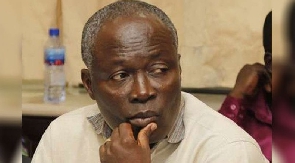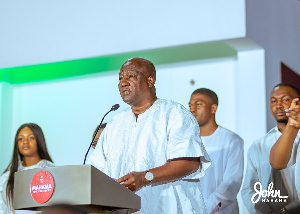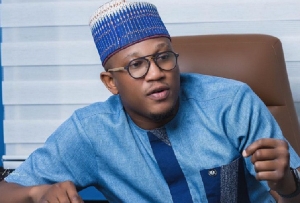The sole preserve of the Supreme Court to interpret the Constitution is not the best of arrangements for the country, Mr Freddie Blay, the First Deputy Speaker of Parliament has said.
He was speaking in an interview with “The Evening News” in Accra against the aftermath of the Supreme Court ruling on the Tsatsu Tsikata versus the Attorney-General. Mr Blay said the vesting of the power of interpretation in the Supreme Court alone, had saddled the nation with a constitutional problem, which the nation must learn to make do with.
The First Deputy Speaker said under the French and European arrangements such controversies on constitutional matters have been settled by a constitutional court. That court, he said is composed of representatives from the three arms of government the executive, legislature and the judiciary to decide on constitutional issues.
The First Deputy Speaker, who is also the Convention People’s Party (CPP) MP for Ellembelle, explained that Ghana’s mode of constitutional interpretation is modelled along the American system but “our country has moved steps further.” He said the present arrangement in Ghana where any individual could apply to the Supreme Court under Article 2 of the Constitution for an interpretation of any law vis-a-vis the constitution ought to be reconsidered.
Mr Blay therefore, suggested the setting up of a Constitutional Court to deal solely with such issues. That, Mr Blay said has the tendency of putting the Supreme court on the spot and under severe pressure when decision turns out to be controversial as Ghanaians are witnessing in the Tsatsu Tsikata versus the Attorney-General case.
He said the controversy the Supreme Court ruling generated could have been avoided. The so-called constitutional fracas is over a matter, which does not deserve the kind of attention it is attracting. Mr Blay said it tends to shake the Supreme Court itself and the judiciary almost to its foundations. He said the split decision which had led to serious division in the judiciary at its highest is not healthy.
On the controversy itself, Mr Blay said it is very peculiar in the sense that the judicial review is not related to a legislative Act or even an executive action. “Interestingly, it is related to the judiciary itself and its internal arrangement on procedure,” he explained. Mr Blay said it was the case of a judicial interpretation of a judicial act. He said that reinforces his contention that all the three arms of government should have the chance to determine the controversy.
Mr Blay described the attack on the judges ruling by people on all sides of the political divide as regrettable. The First Deputy Speaker said the judiciary is a human institution bound to make mistakes occasionally, but life should still go on. He hoped that whatever would be the outcome of the judicial review on the “Tsatsu Tsikata versus the Attorney-General’s” case, “the sky will not fall and Ghanaians must organise themselves and look forward.”
He said what the judiciary is currently involved in, forms part of the development of the nation and the people are learning from it. Asked about his views on the outcome of the review, Mr Blay said he would rather shy away from passing comments on the merits or otherwise of the case.
He, however, insisted that it is the right of the Attorney-General to go for the review if he was convinced since the law allow that. He advised that the Supreme Court, which he described as quasi-political, should shy away from provoking controversies that tend to sap too much energy of the court itself. Mr Blay said when that happens, the court opens the floodgates for unjustified attacks and savagery. He said the Supreme Court has its own mystique in the society and all Ghanaians should help to safeguard it.
Asked about the role of the Attorney-General in criminal prosecutions, Mr Blay said that outfit should be insulated from executive control so that its activities are not misconstrued as “a party in power persecuting its enemies.”
“A crime is a crime if even it is committed by members of the ruling government or the opposition,” he emphasized. Mr Blay therefore expressed his reservations about the directive issued by the President to the Attorney-General to stop all investigations and prosecution of Mr Tsikata after the Supreme Court ruling and the subsequent hullabaloo.
He said people might read political meanings into the actions of the President, saying if a person deserves to be investigated that should be done without people reading political meanings into it.
Click to view details



General News of Wednesday, 27 March 2002
Source: Evening News
















